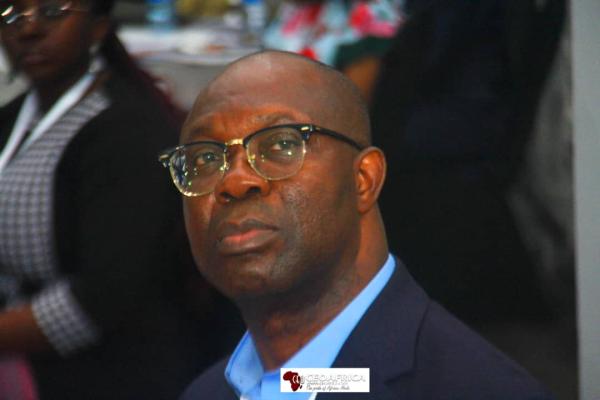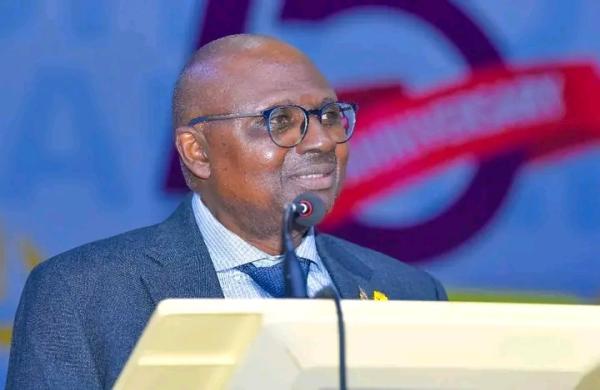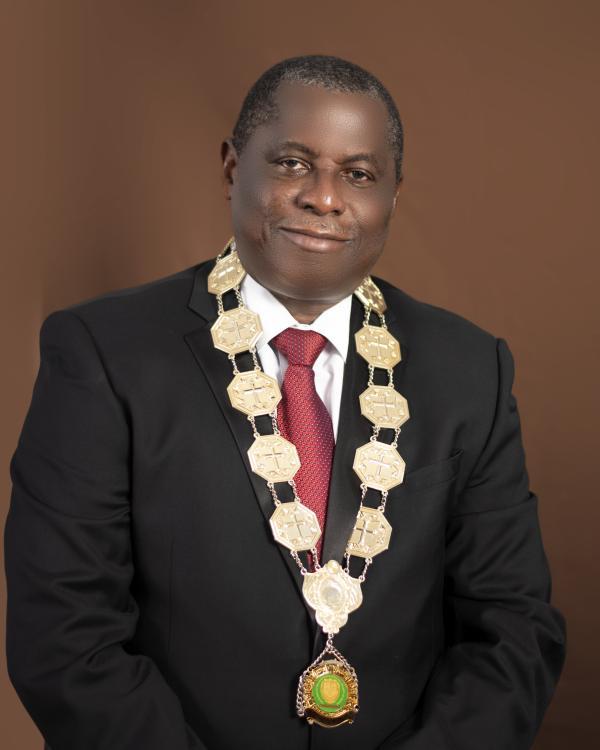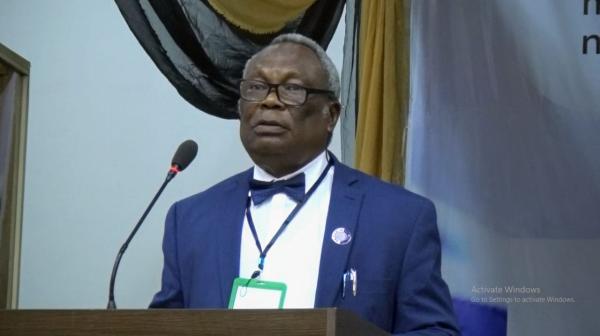
Dr. Ugo Ben-Nwauzor CONVENER
In a landmark collaboration, the Pharmacy Council of Nigeria (PCN), U.S. Pharmacopeia (USP), Global Alliance for Pharmacy Compounding in Africa (GAPCA), Centre for Pharmacy Practice Innovation & Optimization (CENPITOP), and Alpha Pharmacy have launched a strategic push to upscale pharmaceutical compounding across Nigeria.
This was the central message echoed throughout the Maiden Summit on Pharmaceutical Compounding, held on Thursday, October 9, 2025 at Providence Hotel, Ikeja GRA, Lagos, under the theme: “Pharmacy Compounding in Africa: Shaping the Future for Nigeria.”
The summit brought together a spectrum of stakeholders — pharmacists, regulators, clinicians, researchers, industry partners, all convening to define how compounding can strengthen medicine security, advance personalized care, and reposition pharmacy practice in Nigeria and beyond.
In her opening remarks, Dr. Ukamaka Okafor welcomed participants by reminding them of compounding’s roots in pharmacy education: “This summit is bringing us together to remind us of what we already know, what we were taught in school … compounding is essential in order to boost our healthcare system,” she said.
Dr. Ugo Ben-Nwauzor highlighted compounding’s social and professional potential: “It elevates pharmacy both in Nigeria and the diaspora. South Africa happens to be the only country in Africa that has a structured compounding ecosystem. Pharmacists aren’t just dispensers of medication — their faces are patient-centric.”
Delivering the keynote, Dr. Jude Nwokike, Vice President of Supply Chain Resilience at USP, asserted that Nigeria must build resilience across the pharmaceutical value chain. He warned that without uncompromising quality, access is hollow.
“Quality is not an option — it is the foundation of public health. Without quality, there is no access, no trust, and no impact,” he said. He underscored that compounding must be embedded into the full lifecycle: from raw ingredients, formulation, regulatory oversight, to patient delivery.
Dr. Nwokike also traced USP’s evolution from its founding in 1820 to its present role as a global standards authority, with over 9,000 compounding standards guiding pharmaceutical practice worldwide. He revealed USP’s support to 29 manufacturers across Africa, bolstering 71 national regulatory bodies and providing training to over 2,000 pharmacists and outlet operators in Nigeria on quality assurance and medicine storage.
Pharm. Ibrahim Babashehu Ahmed, Registrar/CEO of PCN, laid out the regulator’s vision for compounding in Nigeria. He described compounding as pharmacy’s heritage and future — but insists it must adhere to rigorous safety, quality, and efficacy standards. His address emphasized that the Council has already engaged high-level partners, including the Presidential Initiative for Unlocking the Healthcare Value Chain (PVAC), to institutionalize compounding reform.
Pharm. Ahmed called for infrastructure upgrades, accreditation pathways, workforce training, and cross-sector collaboration. “Let us revitalize compounding not as an option but as a mandate — for the health of our patients, the growth of our profession, and the resilience of our nation,” he declared.
Also speaking, Mr. Vincent Tlala, Registrar/CEO of the South African Pharmacy Council, in his address titled “A New Pharmaceutical Compounding Ecosystem in Africa: Lessons from South Africa,” emphasized the importance of regulatory clarity and regional collaboration.
“South Africa’s experience shows that when compounding is standardized and professionally regulated, it becomes a sustainable contributor to public health and economic growth. Africa must build a framework that combines innovation with patient safety,” he noted.
He added that developing a pan-African compounding ecosystem would not only reduce medicine import dependence but also strengthen professional capacity and patient confidence in the continent’s pharmaceutical sector.
Adding to the discourse, Mr. Huzaifah Khan, President of the Compounding Pharmacists Association of South Africa, spoke on “Revolutionizing Personalized Medicine: Why We Need Hospital Pharmacy Preparations”. He argued that hospital-based compounding allows seamless patient care integration — enabling dose customization, sterile preparations for critical care, and minimizing delays in therapy initiation. He urged Nigeria to adopt hospital frameworks where compounding becomes part of clinical decision pathways.
Joining virtually from Mexico, Dr. Ndidiamaka Okpareke, Founder of Olive Tree Compounding Pharmacy and Co-founder of GAPCA, shared her inspiring journey in a session titled “Digging Well Before the Rain: The Story of Ndidiamaka Opareke and Olive Tree Compounding Pharmacy.”
She traced her path from Nigeria to the United States and eventually Mexico, where she established one of the leading compounding pharmacies. “Africa deserves the very best,” she said. “I have seen compounding do wonders for people throughout my community, and there is no reason we cannot also have the best in Nigeria.”
Dr. Okpareke described compounding as “the soul of pharmacy — where science meets creativity.” She urged pharmacists to keep “digging the well” — preparing, building, and innovating — while waiting for opportunities to blossom. “We may not be able to bring the rain, but together we can dig the well and wait patiently for the rain to fill it,” she said, encouraging resilience, preparation, and purpose-driven practice.
Her story of building Olive Tree Compounding Pharmacy and later Olive Tree Skin Care and Olive Tree School — stood as a testament to faith, innovation, and servant leadership. “We do not fill prescriptions; we fill needs. We do not follow the system; we reshape it,” she said.
In her presentation, Ms. Michelle Sacco, Manager at Airville Pharmacy in Tennessee, addressed “Trends, Tools & Technology for the 21st Century Apothecary”. She emphasized that modern compounding demands dedicated lab spaces, continuous training, and adoption of digital and automation tools.
She called on pharmacists to embrace the “three P’s — pharmacist, physician and patient” model, advocating collaboration across the care triad. She suggested tools like digital formulation databases, automated weighing systems, clean-room suites, error-reduction software, and continuous monitoring platforms as enablers for safe, scalable compounding. Her pharmacy’s own compounding practice includes customized syrups, dosage form modifications and medication synchronization.
In an exclusive interview with CEOAFRICA, Mr. Victor, a summit attendee from Ghana, described the gathering as “a beautiful and wonderful experience.” He said: “We have interacted with great minds from in and outside the country. Pharmacy compounding is a vast area we have not fully tapped into, and the potentials are enormous.”
Pharm. (Sir) Ike Onyechi MD/CEO of Alpha Pharmacy, said his motivation to sponsor the summit came from his long-standing passion for compounding and the deep belief he has in its potential. “When the idea was sold to me in the U.S., I didn’t hesitate. This practice gives pharmacists more honor. I urge policymakers to commit to it because healthcare cannot progress without it,” he said.
Pharm. Olabode Ajayi expressed fulfillment at seeing Nigeria host the first compounding summit on the continent.“Compounding is part of hospital pharmacy practice. It will impact the health system if policymakers ensure implementation, not just policy formulation,” he advised.
Pharm. (Mrs.) Ifeyinwa emphasized the clinical importance of compounding in creating personalized medicines to reduce toxicity and adverse effects. “Stakeholders must collaborate with the patient’s well-being at heart to achieve a healthier Nigeria,” she said.
Prof. Chinedum Peace Babalola, immediate past Vice-Chancellor of Chrisland University, applauded the return of compounding to the forefront of pharmacy. “Compounding isn’t new; it’s what we were taught and practiced decades ago in hospitals. It’s refreshing to see this return — we must sustain it,” she said.
Dr. Ukamaka Okafor, reflecting on the event, expressed optimism.“I’m excited to be part of this pioneer team. Compounding helps personalize therapy for patients who truly need it. With PSN and NAFDAC on board, we must quickly draw a policy framework so we’re not caught unprepared,” she stated.
Dr. Ugo Ben-Nwauzor added that the summit’s goal is to build a reliable and sustainable compounding ecosystem across Africa. “We plan to host this summit every two years across the continent. The vision is to motivate pharmacists to adopt compounding as a practice that transforms healthcare,” he announced.
The summit was graced by high-profile dignitaries, including Pharm. Ibrahim Babashehu Ahmed (Registrar/CEO, PCN); Ms. Michelle Sacco (Manager, Airville Pharmacy, Tennessee, USA); Prof. Chinedum Peace Babalola (Former VC, Chrisland University, Abeokuta); and Pharm. (Sir) Ike Onyechi (MD/CEO, Alpha Pharmacy), among others.
Following the addresses, participants engaged the speakers in an interactive session aimed at deepening understanding and knowledge on pharmaceutical compounding and medicine quality assurance.
Attendees stressed that the gathering must catalyze real change. The pathway ahead demands policy alignment, regulatory clarity, investment, facility upgrades, training, and collaboration. The partnership announced among PCN, USP, GAPCA, CENPITOP, and Alpha Pharmacy signals a strong coalition intent on embedding compounding into Nigeria’s healthcare blueprint.
By the end of the day, the message was clear: compounding is no longer a relic of tradition, it is a strategic lever for medicine security, personalized therapy, and professional revitalization. The real work now begins in translating commitments into sustainable systems that ensure quality, access, and trust — from laboratory to patient cup of medication.






















